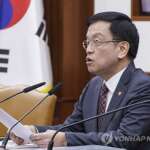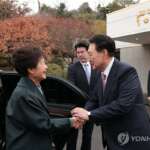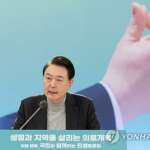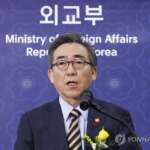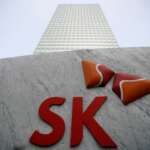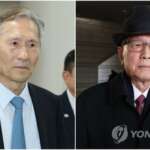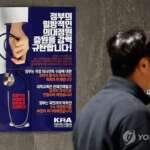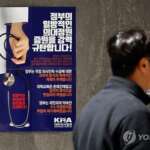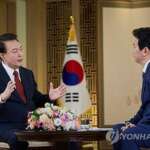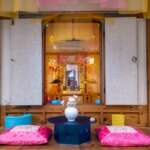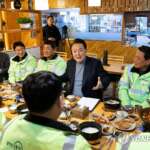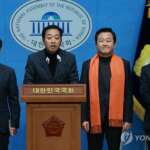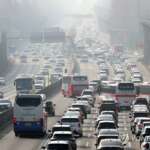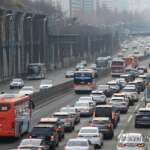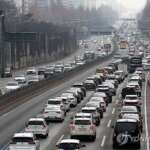A Closer Look at South Korea
South Korea Flag

South Korea Formation Date
August 15, 1948
South Korea Capital Name
Seoul
South Korea Neighbours
Exploring South Korea
South Korea: A Land of Rich Culture, Vibrant History, and Promising Future
South Korea, officially known as the Republic of Korea, is a country located in East Asia. It is situated on the southern portion of the Korean Peninsula, bordered by North Korea to the north, the East Sea to the east, and the Yellow Sea to the west. South Korea has a population of over 51 million people and is known for its rapid economic growth, technological advancements, and unique cultural heritage.Key Takeaways:
- South Korea is located in East Asia and shares borders with North Korea, the East Sea, and the Yellow Sea.
- The country has a population of over 51 million people.
- South Korea is known for its rapid economic growth, technological advancements, and rich cultural heritage.
Geography:
South Korea has a diverse landscape that includes mountains, valleys, and coastal plains. The country is home to many natural resources such as coal, iron ore, and timber. Its climate is temperate with four distinct seasons - spring, summer, fall, and winter. The weather patterns can vary greatly from region to region due to the country's mountainous terrain.Origin and History:
South Korea has a long and rich history dating back to ancient civilizations such as Gojoseon and Goguryeo. In modern times, the country has been influenced by various foreign powers including China and Japan. The Korean War in the 1950s led to the division of the peninsula into North and South Korea.Government and Politics:
South Korea is a democratic republic with a presidential system of government. The country is divided into nine provinces and seven metropolitan cities. It has a complex relationship with its neighbor, North Korea, and maintains close ties with the United States. South Korea is also a member of various international organizations such as the United Nations and the World Trade Organization.Commerce and Economy:
South Korea has a highly developed and diversified economy, with a strong focus on technology and manufacturing. Its major industries include electronics, automobiles, shipbuilding, and steel production. The country has strong trade relations with countries such as China, Japan, and the United States. The South Korean currency is the Korean won.Demographics:
The majority of South Korea's population is ethnically Korean, with a small percentage of Chinese and other ethnic groups. The country has a high population density, with most people living in urban areas. The median age in South Korea is 44 years old, and the life expectancy is 83 years.Culture:
South Korean culture is a blend of traditional Confucian values and modern influences. The country is known for its rich artistic traditions, including pottery, calligraphy, and music. Traditional festivals such as Chuseok (harvest festival) and Seollal (Lunar New Year) are celebrated throughout the year. The country also has a vibrant pop culture scene, with K-pop music and Korean dramas gaining global popularity.Languages and Religion:
The official language of South Korea is Korean, but English is widely spoken in major cities. There are also regional dialects spoken throughout the country. The two dominant religions in South Korea are Buddhism and Christianity, with a small percentage of people practicing Confucianism or Shamanism.Education and Healthcare Systems:
South Korea has a highly educated population with a literacy rate of 97%. The country has a well-developed education system that includes both public and private institutions. In terms of healthcare, South Korea has a universal healthcare system that provides affordable and accessible medical services to its citizens.Sports and Recreation:
Sports play a significant role in South Korean culture, with football (soccer), baseball, and golf being the most popular. The country has also produced many Olympic medalists in sports such as archery, taekwondo, and speed skating. In addition to sports, South Koreans also enjoy hiking, skiing, and other outdoor activities.Tourism:
South Korea has a diverse range of tourist attractions, from bustling cities to serene natural landscapes. Some popular places to visit include the capital city of Seoul, the ancient city of Gyeongju, and the picturesque Jeju Island. The country also has a well-developed transportation infrastructure, making it easy for tourists to travel around.Travel Information for Foreign Visitors:
If you are planning to visit South Korea, there are a few things you should know. First, most foreign visitors will need a visa to enter the country. You can apply for a visa at a South Korean embassy or consulate in your home country. It is also important to be aware of local customs and etiquette, such as removing your shoes when entering someone's home or using both hands when giving or receiving something. The currency used in South Korea is the Korean won, and credit cards are widely accepted in major cities. The country has a low crime rate, but it is always advisable to take precautions and be aware of your surroundings. As for prices, the cost of living in South Korea can vary depending on where you are visiting. For example, Seoul is generally more expensive than other cities in the country.Quotes:
- "In Korea, we believe that education is the only way to overcome our limitations." - Ban Ki-moon, former Secretary-General of the United Nations
- "The Korean people are tenacious and strong, and their culture is one of the oldest in the world." - Kim Jong-un, Supreme Leader of North Korea
- "South Korea's economic success is a direct result of its people's hard work, sacrifice, and determination." - Moon Jae-in, President of South Korea
Summary:
South Korea is a country with a fascinating history, vibrant culture, and promising future. From its diverse landscape to its advanced technology, there is something for everyone to explore and experience in this East Asian nation. With its strong economy, educated population, and rich cultural heritage, South Korea continues to make its mark on the global stage and is sure to have many more achievements in the years to come.South Korea Highest Point Name
The highest peak in South Korea is Hallasan, located on the island of Jeju and stands at 1,950 metres (6,398 feet) above sea level.
South Korea Capital Longitude
126.9780° E
South Korea Capital Latitude
37.5665° N
South Korea Official Languages
The official language of South Korea is Korean.
South Korea Ethnic Groups
Korea is composed of a variety of ethnic groups, including the majority ethnic group, the Koreans. Other smaller ethnic groups include the Chinese, Japanese, Mongolians, Russians, Vietnamese, and Filipinos. Koreans make up more than 99% of the population, with 4.6% belonging to other ethnicities. Chinese constitute the largest minority group in Korea, with more than two million people. Japanese immigrants and their descendants also make up over 200,000 of the population. Koreans adopted some of the culture of Mongolia during the period of Mongol rule and influence, and as a result, there are approximately 20,000 ethnic Mongolians living in the country. Additionally, there are approximately 100,000 ethnic Russian descendants in South Korea, and there are also numerous other nationalities represented in the country, including more than 12,000 Filipinos, over 6,000 Americans, and over 100,000 Vietnamese.
South Korea Religions
The majority of South Korea practices a combination of Buddhism, Shamanism and Christianity. According to the 2015 Census, around 25.5 million South Koreans claimed to follow the teachings of Buddhism, while 16 million claimed to practice Shamanism and 8.6 million people practiced Christianity. Confucianism is an important ideological component of South Korean culture, influencing the moral code of the population. Other religions practiced in South Korea include Hinduism, Islam, and the traditional Korean religion of Cheondoism.
South Korea Total Area
The total area of South Korea is 100,210 sq km (38,691 sq miles).
South Korea Land Area
According to the CIA World Factbook, South Korea has a land area of 100,210 square kilometres (38,691 square miles).
South Korea Water Area
According to the United Nations, the total internal water area of South Korea is 38,269 square kilometers, with 33,359 square kilometers of this area being fresh water (rivers, streams, and lakes). The remaining water located in South Korea is in the form of brackish water. The country also has an extensive coastline, with a total of 4,580 kilometers, mainly facing the Korea Strait, Yellow Sea, and Sea of Japan.
South Korea Total Population
As of October 2020, the total population of South Korea is 51,269,185.
South Korea Currency Name
The currency of South Korea is the South Korean won (₩).
South Korea Currency Code
The currency code for South Korea is KRW (South Korean Won).
South Korea Currency Symbol
The currency symbol for South Korea is ₩ (the Won).
South Korea Time Zones
- UTC+09:00
South Korea follows the Korean Standard Time (GMT+9). South Korea does not observe daylight saving time; however, the South Korean government does recommend that it be observed at least once a year from the end of March to the end of October. During this period, the time is shifted forward by 1 hour, usually at 3am local time on the last Sunday in March and shifted back one hour on the last Sunday in October at 4am local time. Consequently, the North American Central Daylight Time (CDT) is 16 hours ahead of South Korean Standard Time during this period, while the North American Pacific Daylight Time (PDT) is 17 hours ahead.
South Korea Calling Code
The country calling code for South Korea is +82
South Korea Internet TLD
www.aveholidays.kr
How to Say "South Korea" In Different Languages?
- Chinese (Simplified)
- 韩国 (zh-CN)
- Finnish
- Etelä-Korea (fi-FI)
- French
- Corée du Sud (fr-FR)
- German
- Südkorea (de-DE)
- Cantonese
- 南韓 (yue-Hant-HK)
- Hindi
- दक्षिण कोरिया (hi-IN)
- Indonesian
- Korea Selatan (id-ID)
- Hebrew
- קוריאה (he-IL)
- Italian
- Corea del Sud (it-IT)
- Japanese
- 韓国 (ja-JP)
- Polish
- Korea Południowa (pl-PL)
- Portuguese
- Coreia do Sul (pt-PT)
- Romanian
- Coreea de Sud (ro-RO)
- Russian
- Южная Корея (ru-RU)
- Spanish
- Corea del Sur (es-ES)
- Thai
- เกาหลีใต้ (th-TH)
- Ukrainian
- Південна Корея (uk-UA)
- English
- South Korea (en-GB)
- Vietnamese
- Hàn Quốc (vi-VN)
South Korea Popular Holidays
- Beginning of the Year's Work Day
- 1 January
- New Year's Day
- 1 January
- Seollal (Lunar New Year)
- 12 February (14 February)
- Seollal (Lunar New Year's Day)
- 12 February (14 February)
- Independence Movement Day
- 1 March
- Gapyeong Kakao Game Day
- 1 March
- Samiljeol (Independence Movement Day)
- 1 March
- Jeju Olleh Festival
- 1 April
- Sangju Kimchi Festival
- 4 April
- Arbour Day
- 5 April
- Manisan Cherry Blossom Festival
- 11 April
- Book Day
- 11 April
- Gwangju Book Festival
- 12 April
- Gimhae Festival
- 13 April
- Youth Day
- 15 April
- April 14 Movement
- 19 April
- Sanchon Cultural Festival
- 19 April
- Customers' Day
- 20 April
- South Korean National Armed Forces Day
- 25 April
- Samcheok Wonmun Festival
- 25 April
- Sacheonka Festival
- 25 April
- Yangyang Trout Festival
- 26 April
- South Korean Labor Day
- 1 May
- Family Day (Children's Day)
- 5 May
- Buddha's Birthday
- 8 May
- Love Your Parents Day
- 8 May
- Teachers' Day
- 15 May
- Commemoration of Gwangju Democracy Movement
- 18 May
- Adults' Day
- 20 May
- South Korean Memorial Day
- 4 June
- Gangneung Danoje Festival
- 5 June (7 June)
- Environmental Day
- 5 June
- Memorial Day
- 6 June
- Anniversary of the Establishment of South Korean Central Bank
- 12 June
- World Peace Music Festival
- 15 June
- Korea Eco-Friendly Food Expo
- 19 June (21 June)
- Day of the Dead
- 20 June
- Children's Day
- 30 June
- Marine Day
- 8 July
- Constitution Day
- 17 July
- Geumsan-gil Day
- 17 July
- Ulsan Fists Festival
- 19 July
- Daegu Ssireum Festival
- 9 August
- Kite Day (Dokkaebi Festival)
- 9 August
- Mountain Day
- 11 August
- Public Sector Day
- 15 August
- Liberation Day
- 15 August
- Gwangbokjeol (Memorial Day for Redeeming National Sovereignty)
- 15 August
- Reunification Day
- 15 August
- Minister's Day
- 16 August
- Jeju Horseback Riding Festival
- 22 August
- Jeju Fireworks Festival
- 26 August
- DMZ International Peace Concert
- 29 August
- Cheonan International Taegeuk Festival
- 29 August (3 September)
- National Unification Awareness Day
- 1 September
- Nakdong Riverside Geological Park Day
- 11 September
- South Korean Thanksgiving Day (Chuseok Holiday)
- 14 September (16 September)
- Gwangmyeong Sky Festival
- 28 September
- Chuseok (Harvest Festival)
- 30 September (2 October)
- Ancient Garden Cultural Day
- 1 October
- Yangdong Tea Picking Festival
- 3 October
- National Foundation Day
- 3 October
- Hangul Day (National Language Day)
- 9 October
- Korean Alphabet Day
- 25 October
- Seoul World Cup Park Establishment Day
- 29 October
- Beautiful Jeju Day
- 7 November
- Songpa Hanjeungmak (Korean Traditional Hot Sauna Day)
- 15 November
- Christmas
- 25 December





